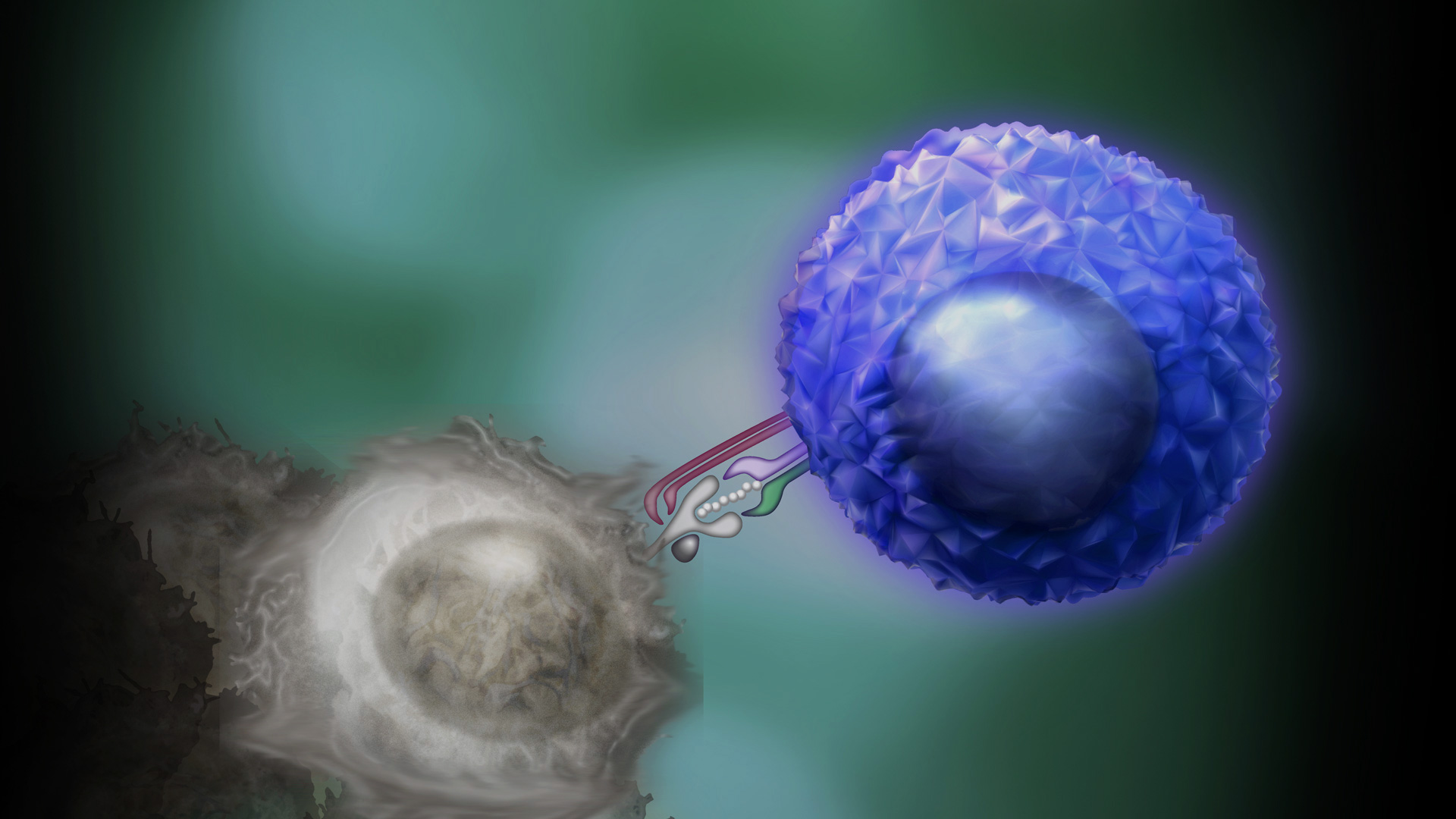Research Group
T-cells and cancer

Group leader: Sine Reker Hadrup
In the T cell & cancer research group we are devoted to characterize T cell recognition in the context of diseases – as such we have contributed significantly to the development of multiplex strategies for T cell detection to comprehensively evaluate T cell reactivity in both cancer and autoimmune diseases.
Novel technologies developed in the group has changed the paradigm for T cell detection by introducing a molecular tagging system (DNA barcoding) - this allows simultaneous detection of >1,000 different antigen responding T cells. We are currently using this technology to unravel the immune reactivity towards cancer associate neo- and shared epitopes, as well as understanding the influence of cancer therapy on the immune recognition. Throughout these studies, we have been able to dissect the epitope specific recognition of clinical relevant T cells, and provide novel insight on how tumors can precisely be targeted through immunotherapy. Herein, we are determined to understand the relationship between tumor genetic heterogeneity and immune recognition.
We have built novel technology platforms that allow in-depth understanding of T cell recognition from a structural perspective, which can be used to evaluate clinical efficacy and safety profiles of T cell receptors for clinical use. The platform we have established and the infrastructure of MHC I production is internationally unique and recognized. We have recently invented a molecular modification allowing for peptide-exchange in completely folded MHC I molecules, which opens for ‘plugg&play’ generation of T cell staining reagents. A spin-out has been established (Tetramershop), to make such reagents available to the scientific community.

Furthermore, we strive to understand the role of T cell recognition in autoimmune diseases, previously done through examination of T cell recognition in Narcolepsia, demonstrating that autoreactive T cells are present in this disease (REF), and studies in RA and MS are currently ongoing. Our data indicates the presence of autoreactive T cells, associated with disease, but also detectable at lower levels in healthy donors. Key characteristics of T cell behavior seems to drive their disease influence.
Finally we have contributed significantly to understanding T cell recognition of SARS-Cov2, and are further evaluating the immune responses towards this virus. Our findings can have major implications for treatment of disease and potentially 2nd generation vaccine development.
Our ambition is to bridge technological and translational research. Through novel technologies, obtain new insight for translation into new and improved therapeutic strategies. An example of such translation is the development antigen-scaffolds for optimal T cell activation and modification; which can form ideal T cell products for cell therapy (patented and spin-out PokeAcell established).

Group Leader
Sine Reker Hadrup Head of Section, Professor Department of Health Technology Phone: +45 35886290 Mobile: +45 27125221 sirha@dtu.dk

